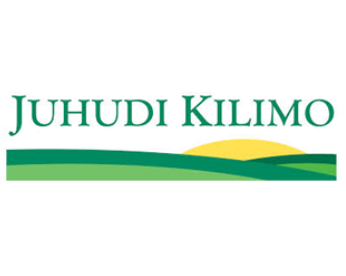Targets
2.1) By 2030, end hunger and ensure access by all people, in particular the poor and people in vulnerable situations including infants, to safe, nutritious and sufficient food all year round
In many rural geographies in low-and middle-income countries (LMICs), smallholder farmers are the backbone of food security in their communities, feeding more than half of the population in developing countries. For this reason, Bayer is committed to helping small farmers address significant challenges including low productivity, outdated agricultural practices, bad quality crop inputs, and the inability to access a market to sell their produce competitively. For these reasons, as well as the effects of climate change, the result in the inability to generate sustainable farm incomes inevitably impacts the livelihood of farm communities.
Bayer is expanding their product and service portfolio, which includes innovative business models and digital solutions across the entire crop system. The company also plans to establish crop value chain partnerships to deliver high-quality inputs, agronomy knowledge, cost-effective financing and risk mitigation solutions, and market linkages. These partnerships will include collaborations with government research institutes, NGOs, and international financial institutions.
In 2020, to prevent Covid-19 from causing a hunger crisis for many farmers, Bayer supported more than 1.5 million smallholder farmers in 15 countries with seed and crop protection products. The company helps smallholders in regions threatened by food shortages with market access for agricultural produce. This encourages an increase in food production in these regions and strengthens the agricultural sector in LMICs in the long term.
Croplife International
According to FAO estimates, global crop losses would double if farmers didn’t have access to crop protection, with a devastating impact on food security. CropLife International is committed to training smallholder farmers in integrated pest management (IPM) techniques so they can effectively protect their crops from pests and diseases ensuring food security. Here is an example of a project in Ethiopia in partnership with the Dutch development organization GIZ to help Ethiopian families eat an affordable, healthy and balanced diet. Since 2005 almost 4 million individuals in 70 countries have been directly trained in IPM and the responsible use of crop protection products.
Walmart
Walmart and the Walmart Foundation have made substantial investments designed to improve access to and availability of healthier food and increase people’s confidence to select, prepare and serve healthier food. Through Walmart’s food donations and additional philanthropic investments from Walmart and the Walmart Foundation, the company met the goal they set in 2014 to provide 4 billion meals to people in need by 2020, largely through the donation of unsold food. In November 2018, funding was put in place to reach 4 million people with nutrition education. In 2019, Walmart stores, clubs and distribution centers in the U.S. donated more than 640 million pounds of food, over 55% of which was fruits, vegetables and meat. Globally, Walmart donated a total of 720 million pounds of food in 2019.
DuPont
In 2012, DuPont set sizeable goals to help end world hunger and ensure food security that are achievable by the end of 2020. DuPont has committed $10 billion to R&D, and the introduction of 4,000 new products by the end of 2020. Through 2013, DuPont invested more than $2.49 billion in R&D and introduced more than 1,700 new products. The work centers on developing innovations that will produce more food, enhance nutritional value, improve agriculture sustainability, boost food safety, extend food freshness and reduce waste.
2.2) By 2030, end all forms of malnutrition, including achieving by 2025 the internationally agreed targets on stunting and wasting in children under five years of age, and address the nutritional needs of adolescent girls, pregnant and lactating women and older persons
Phillips Healthcare Services Ltd.
To combat micronutrient deficiency, Phillips Healthcare Services Ltd. (PHSL) joined the Business Call to Action in 2014 with a commitment to provide micronutrient powder (MNP) to children aged 6-59 months in Kenya. PHSL aims to provide 150,000 Kenyan children with MNP by 2018. So far the initiative has reached around 22,500 children through the sale of 39, 770, 750 units of MNP. The children’s parents and teachers have noted that they are ill less often and more alert in class. The initiative also increases economic productivity by preventing childhood illnesses; this also reduces the time parents have to stay home from work. In addition, the initiative aims to provide employment and training opportunities to more than 120 local staff who will be working to strengthen demand for MNP.
Nestlé
In 2016, Nestlé surpassed their goal of delivering 200 billion micronutrient-fortified servings of foods and beverages annually worldwide. They reached 207 billion, and helped to address global micronutrient deficiencies with a special focus on children and women of childbearing age. Nestlé is also working to develop biofortified crops and launch new biofortified products in key markets to expand its fortified products portfolio and benefit rural farming communities.
2.3) By 2030, double the agricultural productivity and incomes of small-scale food producers, in particular women, indigenous peoples, family farmers, pastoralists and fishers, including through secure and equal access to land, other productive resources and inputs, knowledge, financial services, markets and opportunities for value addition and non-farm employment
MasterCard
MasterCard has been leading efforts with the World Food Programme to transform the delivery of food assistance for people living in refugee camps. The company also recently launched 2Kuze, a product developed by the MasterCard Labs for Financial Inclusion in Nairobi that digitizes the agriculture supply chain. 2KUZE connects smallholder farmers, agents, buyers and banks through a digital platform. It empowers farmers by providing them access to markets, information, and relevant financial services, all made possible through transparent digital payments. Farmers using 2Kuze can conduct the entire transaction of selling produce and receiving payments via their mobile phones. Farmers are also able to capture a greater percentage of the wholesale value of their goods by providing price transparency, more direct access to buyers and empowerment of farmer-friendly agents. The platform is being piloted in Nandi Hills, Kenya, in partnership with Cafédirect Producers Foundation, a nonprofit organization working with 300,000 small holder farmers globally.
Walmart
Between 2011 and 2017, Walmart Foundation funded training for 1.2 million farmers and farm workers in 15 countries. Women farmers made up more than half of those trained, with more than 600,000 benefitting directly(also see Target 5.5). Additionally, Walmart and the International Crops Research Institute for the Semi-Arid Tropic (ICRISAT) launched ICRISAT’s program in Andhra Pradesh focused on two key national priorities: doubling farmers’ incomes and addressing malnutrition in rural areas. This two year program (2018 – 2020) will impact 6,100 smallholder farmers, 2,000 of whom are women. The Walmart Foundation has granted close to US$2 million to the project as part of an ongoing initiative to improve market access for India’s smallholder farmers.
Taze&Kuru
Taze Kuru has successfully managed to source produce from dozens of local smallholder farmers, strengthening local economies wherever they operate. In 2013, Taze Kuru sourced 300 tons of fresh fruits and vegetables from small-scale farmers in Ankara province in Turkey. To ensure quality, the company only sources from farmers who participate in a government-supported scheme called 'Good Farm', which promotes good farming practices and low chemical use. Moreover, Taze Kuru ensures efficient supply chains, including efficient, low-cost transport from farm gates to distribution centers or processing units. As one approach, Taze Kuru has created a new technology in which, by using geothermal energy, fruit is dried inside a tunnel where fan-circulated warm air draws moisture from it. This reduces drying time while preserving as much nutrition and flavour as possible.
Local farmers have been able to increase their incomes and reduce waste by selling their products to Taze Kuru. And to date, the company has created 30 jobs, mainly for women, who receive fair wages. In additional, 125 people are currently receiving training from Taze Kuru, The company plans to add another 20 jobs and to involve 100 smallholder farmers in its business model by the end of the year. The company estimates that it will create 300 jobs in 5 years' time if current growth continues.
Juhudi Kilimo
Joining Business Call to Action in 2011, Juhudi Kilimo provides asset financing and technical assistance to smallholder farmers throughout Kenya. Juhudi's initiative goals include expanding asset financing and technical assistance to rural farmers in order to reach 100,000 farmers by 2014, of whom over 50 per cent will be women, benefiting 500,000 rural Kenyans in all; and increasing the incomes of the farmers Juhudi supports by 50 per cent. Juhudi has raised over US $14 million in debt financing to make this possible. To date, Juhudi has provided 40, 000 loans that have allowed rural Kenyan farmers earning less than $2 a day to increase their incomes and productivity. In this same period, Juhudi has financed over 18,000 cows which have produced an estimated 61 million litres of milk worth $16.4 million in income for the farmers during their loan periods. Moreover, most of the assets provided by Juhudi's financing not only produce income, but provide supplemental food for family consumption, fertilizer and employment. In 2013, Juhudi financed 4, 231 cows that together produce on average 558,492 litres of milk per month. At an average prive of 23 Kshs per litre, one cow will generate 3, 036 Kshs (US $33.884) in milk per month, some of which can be used at home and some of which can be sold. In addition, cow dung is used as fertilizer to enhance crop yields or stored to generate blogas for cooking fuel. As their businesses grow, smallholder farmers are able to provide employment to other community members as well.
2.4) By 2030, ensure sustainable food production systems and implement resilient agricultural practices that increase productivity and production, that help maintain ecosystems, that strengthen capacity for adaptation to climate change, extreme weather, drought, flooding and other disasters and that progressively improve land and soil quality
Philip Morris International
As a global company sourcing from 450,000 tobacco farms on which 2.5 million people live or work, Philip Morris International (PMI) takes very seriously its role in promoting sustainable agriculture. PMI's contribution to SDG 2 focuses on addressing food security needs, increasing the productivity and incomes of small scale farmers, promoting crop diversification, and continuous investment in extension services, agronomy research and technology development and implementation. Moreover, because rain patterns can be a major obstacle to agricultural production in certain venues, such as Sub-Saharan Africa, we have also focused on addressing improved infrastructures to retain rain water in countries in our supply chain. Through its Good Agricultural Practices program, PMI has been supporting smallholder farmers to grow food crops in parallel with tobacco by financing food crop inputs (fertilizer and improved seed, e.g. maize, soy, groundnuts, grains, potatoes and rice) and providing technical assistance through over 1,000 field agronomists who visit farms in, for example, Malawi, Mozambique and Tanzania. The goal is for farmers to produce multiple kilos of food for every kilo of tobacco they grow. In 2017, these efforts reached approximately 150,000 smallholder farmers in sub-Saharan Africa, who have seen food crop yield improvements of up to four times (e.g. maize), enough to ensure food security for the family and in many cases to generate surplus for sale in local markets. In fact, food crop production is outpacing tobacco leaf production in some of those venues where the integrated production system is being applied in sub-Saharan Africa. Together with suppliers, PMI is exploring with other international commodity buyers and other stakeholders the possibilities for establishing sustainable routes to market for the surplus food crops produced by farmers in the supply chain in these countries, leveraging on the infra-structure and related systems that it and suppliers have set up.
McDonald’s
McDonald’s supports sustainable agricultural production at every aspect of the supply chain. Teaming up with the international non-profit TechnoServe and the Sustainable Commodities Assistance Network (SCAN), McDonald’s trains 13,000 farmers in Guatemala and Central America to produce coffee more sustainably while simultaneously increasing crop yields. This added technical assistance will help strengthen the local economy, improving the lives of many smallholders.
Novozymes
Novozymes’ solutions, such as its BioAg work, help to build resilient agricultural value chains by increasing crop yields and reducing raw material inputs. Similarly, Novozymes’ Animal Health and Nutrition solutions improve animal digestion resulting in higher farm efficiency and productivity by extending the range of raw materials used in feed. By adding enzymes to feed, the animal grows faster and enjoys better health. Production becomes more uniform, and a higher feed conversion ratio and larger yield are achieved. Novozymes also works with a variety of partners, such as the BioAg Alliance, which was initiated to increase the market penetration of Novozymes solutions to support sustainable agricultural development, and the WBCSD Climate Smart Agriculture LcTPi, which aims to scale up the development and diffusion of low-carbon technologies and business solutions.
Dow
Dow develops technologies that enable farmers to increase their food production. The company partnered with key stakeholders in Brazil to implement the Sustainable Livestock Initiative, a program that would ensure sustainable beef and milk production systems. Dow developed a range and pasture herbicide technology, “ForeFront,” that removes weeds and promotes the growth of nutritious grazing grasses, thereby expanding the forage area for livestock. After its introduction on six model farms, the Rural Environmental Register concluded that 90% of treated deforested areas had already experienced regeneration. The practices from this initiative are now being incorporated into other regions to further progress elsewhere.
Fonterra
Fonterra works with smallholder dairy farmers in Sri Lanka to support improved productivity, profitability and sustainability through improving animal health and welfare, forage systems, and milk quality and safety. As a member of the Global Dairy Platform and a co-operative owned by farmers, Fonterra works to increase the capacity of local milk producers in a sustainable manner. The Fonterra Diary Development Program partners with the New Zealand Ministry of Foreign Affairs and Trade, the University of Peradeniya and a team of 20 Supplier Relationship Officers that work one-on-one and in groups with farmers to build capability. Through its milk collection centers, Fonterra builds relationships with suppliers and then provides education and support to adopt good management practices. Fonterra pays farmers a premium for improved milk quality and safety. Fonterra works with suppliers to identify capability and knowledge gaps and to tailor appropriate advice and support for farmers. This can be related to milk quality and safety, productivity, animal health and welfare or sustainability.
For more information on their up-to-date efforts, visit Fonterra’s 2019 Sustainability Report.
2.5) By 2020, maintain genetic diversity of seeds, cultivated plants and farmed and domesticated animals and their related wild species, including through soundly managed and diversified seed and plant banks at the national, regional and international levels, and promote access to and fair and equitable sharing of benefits arising from the utilization of genetic resources and associated traditional knowledge as internationally agreed
Means of Implementation
2.A) Increase investment, including through enhanced international cooperation, in rural infrastructure, agricultural research and extension services, technology development and plant and livestock gene banks in order to enhance agricultural productive capacity in developing countries, in particular least developed countries
IBM
Protecting the global food supply is a monumental public health and sustainability challenge. In January 2015, scientists from IBM Research and Mars established the Consortium for Sequencing the Food Supply Chain, a collaborative food safety platform that will leverage advances in genomics to further our understanding of what makes food safe. As a first step, the consortium’s scientists will investigate the genetic fingerprints of living organisms such as bacteria, fungi or viruses and how they grow in different environments, including countertops, factories and raw materials. This data will be used to further investigate how bacteria interact, which could result in completely new ways to view supply chain food safety management. This pioneering application of genomics will enable an in-depth understanding and categorization of microorganisms on a much bigger scale than has previously been possible. The first data samples will be gathered at Mars-owned production facilities, while IBM’s genomics, healthcare and analytics experts will utilize IBM’s Accelerated Discovery THINKLab, a unique collaborative research environment, for the large-scale computational and data requirements of this initiative. Beyond the research, data and findings will be presented in a systematic way to enable affordable and widespread use of these testing techniques.
DuPont
By the end of 2020, DuPont will have facilitated two million youth engagements around the world, transferring knowledge of sustainable food and agriculture and its impact on a growing population. Through 2013, DuPont worked with 1.2 million youth, from a collaboration with 4-H in Africa to educate and encourage future farmers to promoting safe farming practices through interactive programs and computer donations for Brazilian third and fourth graders.
2.B) Correct and prevent trade restrictions and distortions in world agricultural markets, including through the parallel elimination of all forms of agricultural export subsidies and all export measures with equivalent effect, in accordance with the mandate of the Doha Development Round
2.C) Adopt measures to ensure the proper functioning of food commodity markets and their derivatives and facilitate timely access to market information, including on food reserves, in order to help limit extreme food price volatility


















